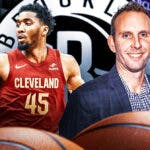Season Autopsies: San Antonio Spurs | Phoenix Suns | Dallas Mavericks | Sacramento Kings | Denver Nuggets | Milwaukee Bucks | Miami Heat | Minnesota Timberwolves | Philadelphia 76ers | Utah Jazz
Precisely 365 days before the Utah Jazz’s 2017-18 season ended with a Game 5 loss in Houston, the club’s previous iteration saw an eerily similar campaign come to a close.
The 2016-17 Jazz battled injuries but surged late to 51 wins and a No. 5 playoff seed. In the first round, they went on the road to defeat a team with an identical record but more star power. They advanced to face the West’s top team, but without their starting point guard, they didn’t put up much of a fight, losing 0-4. Heading into that offseason, the prevailing sentiment around the team was one of uncertainty as key players approached unclear futures and big career decisions.
This year’s Jazz battled injuries, but surged late to 48 wins and a No. 5 playoff seed. In the first round, they went on the road to defeat a team with an identical record but more star power. They advanced to face the West’s top team and put up a bit more resistance despite again being without their starting point guard. The feeling around the team now, though, is different from a year ago.
“We’ll be back,” star rookie Donovan Mitchell vowed at the team’s final media availability on Wednesday.
Mitchell is one of the primary reasons the macro vibe around this year’s Jazz is more positive than it was 52 weeks ago. The 13th pick in last June’s draft became the first rookie to lead a playoff team in scoring since 2003 and his prolific scoring continued into the postseason. He joined Kareem (then known as Lew Alcindor) as the only NBA rookies to score 21+ in seven straight playoff games, and he’s one of just four modern rookies to average 24+ in his maiden postseason.
But Mitchell has provided the Jazz with far more than a bunch of points. His unexpectedly instant stardom gives Utah some clarity nobody thought they’d have so quickly after Gordon Hayward’s free agent departure.
Well, almost nobody.
“(After Hayward’s decision on) July 4, a lot of teams in this league would say let’s start over, let’s start from scratch,” Mitchell said. “I don’t think we saw all this happening, but we knew we were going to have some success.”
They did… eventually.
Necessity is the mother of invention

Going into the season, Jazz brass expected Rodney Hood to slide into Hayward’s role as a primary offensive option, Rudy Gobert to have an All-NBA encore by dominating the defensive paint, and Ricky Rubio to play like the 2017 version of Hall of Fame guard Jason Kidd.
Jazz GM Dennis Lindsey on NBA TV last night said he wants Ricky Rubio to be the 2017 version of Jason Kidd.
— Michael Gallagher (@MikeSGallagher) July 6, 2017
Had all of those hopes come to fruition, the club might not have needed Mitchell to take on such an outsized role in his rookie campaign. It’s not hard to imagine a scenario where the Louisville product would have come off the bench and offered a welcome scoring punch while developing his game in fewer minutes. But that’s not how it played out.
Rubio and the Jazz spent the early part of the season trying to solve the puzzle of going up against defenses that just sagged off the Spanish point guard. He had a few nice scoring performances here and there, but when missed too many of those 18-footers teams were daring him to take, it naturally made him more tentative and mired the Jazz offense as a whole.
Those struggles allowed teams to guard with their heels in the paint, taking away the rim runs that had been Gobert’s staple the previous season. An elite pick-and-roll finisher at his best, Gobert suddenly found he no longer had an empty lane to dive into, which sapped his overall efficiency in those early weeks. Then Gobert suffered back-to-back injuries, one to each of his knees. The Jazz’s best player would eventually miss most of the first half of the season.
To complicate matters further, Hood didn’t quite look the part of a primary scorer. He opened the season making just 37 percent of his shots, mostly functioning as a spot-up shooter opposite those Rubio pick-and-rolls. It wasn’t working, so Jazz coach Quin Snyder decided to try something unconventional: he brought Hood back to the bench and looked to the rook.
Mitchell became Utah’s full-time starter at the off-guard position in Utah’s 12th game. Snyder wanted Utah’s spacing-challenged starting unit to benefit from another guard who could put pressure on the defense with the ball in his hands. And while he knew the youngster’s output would fluctuate while he learned the NBA game, his club was starved enough for offensive options that he was willing to ride out those ups and downs.

Soon, the ups outnumbered the downs. The Jazz lost their first game after the lineup change – the game where Gobert first went down with an injury – as Mitchell shot just 5-for-14. But he totaled 50 points in his next two outings, and a few weeks later he weaved to the basket for 41 in a home win against the Pelicans.
In short, the rookie became what the Jazz desperately lacked: a primary offensive weapon.
Mitchell credits “non-stop work” for his meteoric rise, and specifically mentions constant film study with Snyder and Johnnie Bryant, the same Jazz assistant who helped Hayward hone his game and elevate to All-Star status. He knows there’s still work to do. His decision-making can be better in certain situations, and his defense could tighten up. His overall shooting efficiency hovers around league average. But Mitchell sounds like a guy who’s headed back to the lab to address those things.
“This isn’t a victory lap summer. It’s been a great year, but in my head there’s a lot more to work on.”
Regardless, the Jazz have found a star to inherit Hayward’s role and touches, and it took them months, not years, to do so.
Très Stifling

Mitchell’s rise could prove to be the most important long-term development from the Jazz’s 2017-18 season, but it’s not the one that turned their season around.
Even after Mitchell took over the starting job and eventually the lead role in the offense, the club floundered through a tough December schedule and then started the new calendar year with some more missteps. They’d bottom out at 19-28 after a January 22 loss to the lottery-bound Hawks.
Gobert had returned to action just prior to that nadir, and by late January he was starting to get his rhythm and conditioning back. Before long, he was looking like himself – and the Jazz defense was back to normal.
The NBA’s best defense – the Boston Celtics – held opponents to 101.5 points per 100 possessions over the course of the year. Starting Jan. 24, Utah held teams to 96.5. Getting Gobert healthy allowed Utah to restore its identity as a smash mouth, grinding defense featuring aggressive perimeter ball-hawking backed up by elite paint protection.

The Jazz tweaked some offensive sets so they could still produce points when Gobert and Rubio shared the court with Derrick Favors, another above-average rim protector who can also guard in space in more situations.
But it’s no coincidence the Jazz went from bad to great, skipping right over any middle ground, right when Gobert returned to form. Utah went 29-6 after Jan. 24. Gobert’s defensive rating during that span was 95.3. Just as elite offensive stars can take over games with their scoring, Gobert has absolutely carried Utah to wins on the other end by deterring drives, altering shots, and just generally anchoring a defense that is engineered to frustrate.
He got his offense going, too. After averaging 11.6 points before the injuries, he contributed 14.4 per game after returning. A lot of that had to know with Utah finding ways to open up the roll game. They opened that up by getting Mitchell and Joe Ingles involved as pick-and-roll facilitators, by getting Rubio to be more aggressive, and by changing some of the angles and spacing on their sets. The result is Gobert crept back up to the 87th percentile for points per possession as a roll man. Favors finished above league average, too (58th percentile) after a rough start to the year.
In other words, the Stifle Tower is back. He and Mitchell give the Jazz a head start at assembling their new core.
Secondary stars and sneaky depth

It seems like Ricky Rubio is always adjusting to something.
In six seasons with the Minnesota Timberwolves, Rubio worked under four different head coaches and alongside a rotating cast of fellow starters. Then he showed up in Utah, where he’d need to learn a whole new set of teammates, to say nothing of Snyder’s complex offense.
Snyder calls plays occasionally, but more than anything, Utah’s offense is a series of layered actions meant to wear down defenses and create an advantage any of the five Jazzmen on the court can decisively attack. It took time for Rubio, a facilitator by instinct, to figure out the right moments and methods to put pressure on the defense. Once he did, he was as big a part of Utah’s renaissance as anybody.
The Jazz were 19-6 in games where Rubio knocked down at least two three-pointers, and 13-2 when he crossed the 20-point threshold. He was an extremely important bellwether for how the offense as a whole was working, and began to embody the Snyderian tenet that there’s offensive value in a player who puts pressure on the defense, regardless of whether or not the shot ultimately falls.
For Ingles, the shot almost always falls.

That’s at least what it feels like to Jazz fans, whose anticipation swells anytime the 44-percent shooter lines up from deep. The Australian forward had his best year yet by almost any measure. He scored a career-high 11.5 points per game, while grabbing an extra rebound and nearly doubling his assist average as a more frequent facilitator. His advanced metrics all climbed to career levels, and somehow he got even better during Utah’s 11-game playoff run.
And Favors, after two straight seasons hampered by knee and back issues, finally looked like himself. He’s not quite the rim protector Gobert is, but he’s above average there while also offering the Jazz some switching options out in space. He can score in more ways in the pick-and-roll, and he’s an improving passer when weakside helpers come to stunt his roll. When Favors and Gobert are both healthy, the Jazz can throw 48 solid minutes of above average centers at the opposition, and they obviously play long stretches together, too. The pair had a plus-7.2 net rating this season, and it jumped to plus-10.9 in the playoffs.
Utah made subtler changes to improve its rotation, too. They swung a midseason trade for Jae Crowder and quietly retooled their entire bench unit. Crowder took over the stretch big role that had been occupied by the aging Joe Johnson. Defensive-minded rookie Royce O’Neale replaced Hood in the rotation after the latter was included in the trade. And Dante Exum eventually got healthy and grabbed minutes from mercurial scorer Alec Burks.
In each of those cases, an argument could be made that the club moved from a more proven asset to less of a sure thing. But Snyder wanted to field a group of players who were all on the same page about the right way to play. Mitchell’s emergence as a scoring option meant they no longer had to be beholden to the desperate search for buckets. They could play guys who wanted to defend, work hard and play together.
“We’ve got guys who are selfless. No one cares who scores, who shoots,” Mitchell said. “You know, we are really focused on winning and finding any way to win.”
Looking Ahead

The Jazz feel like they’re just getting started. And they could be right.
Most of Utah’s core remains intact past this season. Mitchell, Gobert and Ingles are all locked in long-term, and Rubio and Crowder each have another year under contract.
Favors is the only one of their top six minutes guys who has an uncertain future to sort out. He’s an unrestricted free agent this summer and will certainly draw interest, including from teams who can offer him a bigger role. Exum will be a restricted free agent, and they also have a trio of bench veterans – Thabo Sefolosha, Jonas Jerebko and Ekpe Udoh – whose contracts they have the option to guarantee or cut for next season.
But broadly speaking, Utah can focus on building on their 48-win season, rather than on building anew.
After all, they’ll be back. Just ask them.




